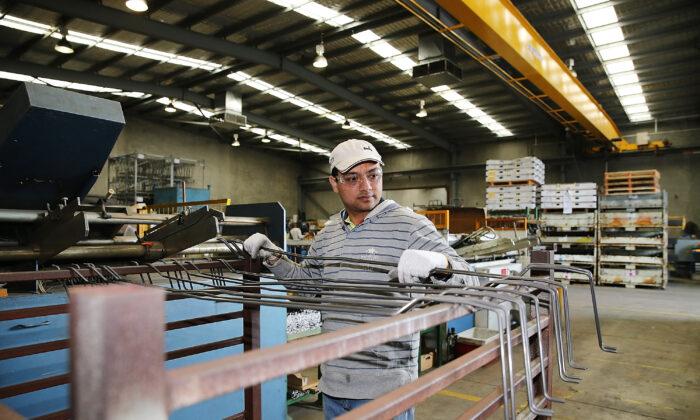Unions have applauded South Australia’s big spending budget, but the business sector has lamented the lack of support for local companies and traders amid a cost-of-living crisis.
SA Treasurer Stephen Mullighan described the Labor government’s budget delivered on Thursday as “the largest package of cost-of-living relief measures ever deployed in South Australia”.
The budget focused on housing, health and hip-pocket relief, with $474 million ($326 million) for housing assistance, an extra $2.3 billion for health and $471 million for cost-of-living support.
The housing package will also provide for 3,600 builds over the next five years and allows the government to abolish stamp duty on new homes for first-time buyers.
Cost-of-living cash includes $254 million for energy rebates to 420,000 households, along with $44 million over five years to index government concessions in line with inflation.
Extra health spending includes $1.3 billion over five years to cater for extra demand on the public hospital system and $567 million to cover the ongoing cost of the COVID-19 pandemic.
SA Unions Secretary Dale Beasley said the spending was thoughtful and responsible.
“South Australians face compounding challenges from the pandemic and flooding to stagnant wages, housing unavailability and skyrocketing living costs,” Beasley said.
However, the Australian Industry Group said the Budget’s focus on housing was positive for businesses, particularly in regional areas where prospective employees often struggled to find suitable accommodation.
But they noted the budget lacked the imagination needed as businesses struggled with skill shortages, rising input costs, interest rate rises and inflation.
“Last year’s Budget was about COVID recovery and driving economic complexity, while this year’s largely lacks the imagination needed as the State’s businesses struggle with skill shortages, rising input costs, interest rate rises and inflation,” the group’s SA head Jodie van Deventer van Deventer said.
“While energy bill rebates of up to $650 for 89,000 small businesses are welcome, it is a Band-Aid measure, given that an Energy Consumers Australia report released today shows that South Australian businesses are paying more for power than anywhere else in the country.”
She welcomed the budget’s focus on skills, as well as defence and space and the government’s commitment to no new taxes and no tax increases.
“In a tight fiscal environment, it is essential this government ensures its policies and programs encourage productivity, business competitiveness and growth, which are key to our State’s success, creating economic prosperity for all.
Business Want Payroll Tax Change
Business SA said they were hoping to see relief in the form of lifting the payroll tax threshold, which is becoming an increasing burden, something that the budget didn’t deliver.“Where households receive some respite in this budget, businesses do not,” chief executive Andrew Kay said.
“Through no fault of their own, business owners are now carrying extra costs under a model discouraging growth and job creation.”
Meanwhile, Australian Medical Association said it was pleased the government had recognised the coronavirus pandemic would continue to affect health workers and impact system capacity.
“I thank the state government for listening when doctors, colleagues and patients have described the challenges we face in providing and accessing health care,” association state president John Williams said.
The budget showed a $249 million deficit for 2022-23 compared to the $223 million surplus forecast last year.
The decline was attributed to higher health costs, lower GST grant revenue and the $100 million cost of emergency management during the River Murray floods.
Despite this, the budget forecasts SA’s finances to return to a $250m surplus in the next financial year.
The opposition argued the package left other everyday South Australians to fend for themselves as it failed to offer broader support.
“A typical South Australian family on an average salary and with an average mortgage have been abandoned by Peter Malinauskas with no new support to deal with skyrocketing cost of living pressures, including the highest electricity prices in the country,” Opposition Leader David Speirs said.




